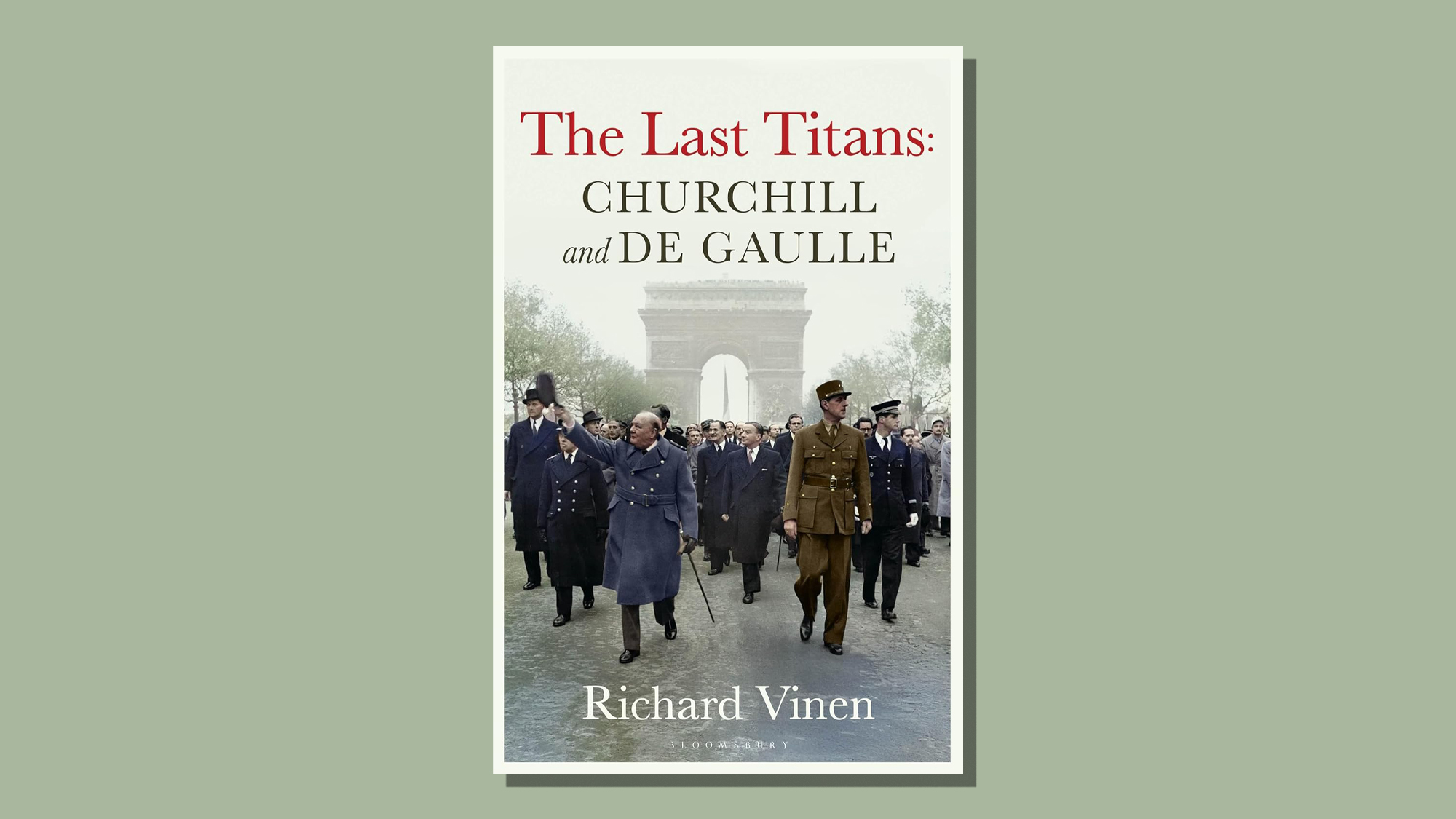The Last Titans: Churchill and de Gaulle – a 'highly readable' account of two 'men of destiny'
'Well-timed' biography illustrates how France and Britain could cooperate today

A free daily email with the biggest news stories of the day – and the best features from TheWeek.com
You are now subscribed
Your newsletter sign-up was successful
We already have plenty of biographies of Winston Churchill and Charles de Gaulle, as well as a "magisterial" joint study by François Kersaudy, published in 1981.
But in this "relatively short introduction to the pair", the historian Richard Vinen offers us something new, said Piers Brendon in Literary Review – "a kind of meditation, drawing out key themes in the lives of the two men who in 1940 embodied the spirit of resistance to Nazism".
Both saw themselves as men of destiny – de Gaulle even more so than Churchill – and both were "iron-willed but not inflexible". Among the book's great strengths, however, is Vinen's sharp observation of the contrasts between them. Churchill, the "aristocratic epicurean", was "squat, extravagant, quixotic and ebullient" – a "cavalier" who saw war as "a glorious adventure". De Gaulle could seem like his "living antithesis", a "bourgeois stoic" – "tall, austere, melancholic and aloof", a "samurai" for whom war was "a stern duty".
The Week
Escape your echo chamber. Get the facts behind the news, plus analysis from multiple perspectives.

Sign up for The Week's Free Newsletters
From our morning news briefing to a weekly Good News Newsletter, get the best of The Week delivered directly to your inbox.
From our morning news briefing to a weekly Good News Newsletter, get the best of The Week delivered directly to your inbox.
One of the "many pleasures" of Vinen's "highly readable" book is his "keen eye for detail", said Margaret MacMillan in The Observer, from de Gaulle "horrifying his aides by giving up cigarettes for chewing gum", to Churchill "turning somersaults in his bathtub". And Vinen also insightfully describes their relationship. No one "enraged" Churchill quite as de Gaulle did. As an exile in London during the War, the French brigadier general was in a "very weak" position. Yet he was relentlessly condescending towards his hosts, and – while fighting, as he saw it, for his country's dignity – he made some "dreadful scenes" (as when the British told him only at the last minute about the D-Day landings). "He thinks he's Joan of Arc, but I can't get my bloody bishops to burn him," Churchill exclaimed. Even so, each had a grudging admiration for the other, with de Gaulle once noting privately that Churchill was "the genius of this war", though "a little too prone to take refuge in whisky".
Vinen also has much to say about the postwar era, said Philip Stephens in the Financial Times. Churchill, though a great optimist, was like "an old man mourning for the past" in the 1950s, struggling to find a political purpose while his "treasured empire" unravelled. The pessimistic de Gaulle, by contrast, not only reunited France after liberation in 1944, but later established the Fifth Republic and may well have saved it from civil war over Algeria. The book feels "well-timed": it throws an interesting light on how France and Britain, now "diminished powers", can work together today.
A free daily email with the biggest news stories of the day – and the best features from TheWeek.com
-
 Political cartoons for February 19
Political cartoons for February 19Cartoons Thursday’s political cartoons include a suspicious package, a piece of the cake, and more
-
 The Gallivant: style and charm steps from Camber Sands
The Gallivant: style and charm steps from Camber SandsThe Week Recommends Nestled behind the dunes, this luxury hotel is a great place to hunker down and get cosy
-
 The President’s Cake: ‘sweet tragedy’ about a little girl on a baking mission in Iraq
The President’s Cake: ‘sweet tragedy’ about a little girl on a baking mission in IraqThe Week Recommends Charming debut from Hasan Hadi is filled with ‘vivid characters’
-
 Kia EV4: a ‘terrifically comfy’ electric car
Kia EV4: a ‘terrifically comfy’ electric carThe Week Recommends The family-friendly vehicle has ‘plush seats’ and generous space
-
 Bonfire of the Murdochs: an ‘utterly gripping’ book
Bonfire of the Murdochs: an ‘utterly gripping’ bookThe Week Recommends Gabriel Sherman examines Rupert Murdoch’s ‘war of succession’ over his media empire
-
 Gwen John: Strange Beauties – a ‘superb’ retrospective
Gwen John: Strange Beauties – a ‘superb’ retrospectiveThe Week Recommends ‘Daunting’ show at the National Museum Cardiff plunges viewers into the Welsh artist’s ‘spiritual, austere existence’
-
 Bad Bunny’s Super Bowl: A win for unity
Bad Bunny’s Super Bowl: A win for unityFeature The global superstar's halftime show was a celebration for everyone to enjoy
-
 Book reviews: ‘Bonfire of the Murdochs’ and ‘The Typewriter and the Guillotine’
Book reviews: ‘Bonfire of the Murdochs’ and ‘The Typewriter and the Guillotine’Feature New insights into the Murdoch family’s turmoil and a renowned journalist’s time in pre-World War II Paris
-
 6 exquisite homes with vast acreage
6 exquisite homes with vast acreageFeature Featuring an off-the-grid contemporary home in New Mexico and lakefront farmhouse in Massachusetts
-
 Film reviews: ‘Wuthering Heights,’ ‘Good Luck, Have Fun, Don’t Die,’ and ‘Sirat’
Film reviews: ‘Wuthering Heights,’ ‘Good Luck, Have Fun, Don’t Die,’ and ‘Sirat’Feature An inconvenient love torments a would-be couple, a gonzo time traveler seeks to save humanity from AI, and a father’s desperate search goes deeply sideways
-
 A thrilling foodie city in northern Japan
A thrilling foodie city in northern JapanThe Week Recommends The food scene here is ‘unspoilt’ and ‘fun’